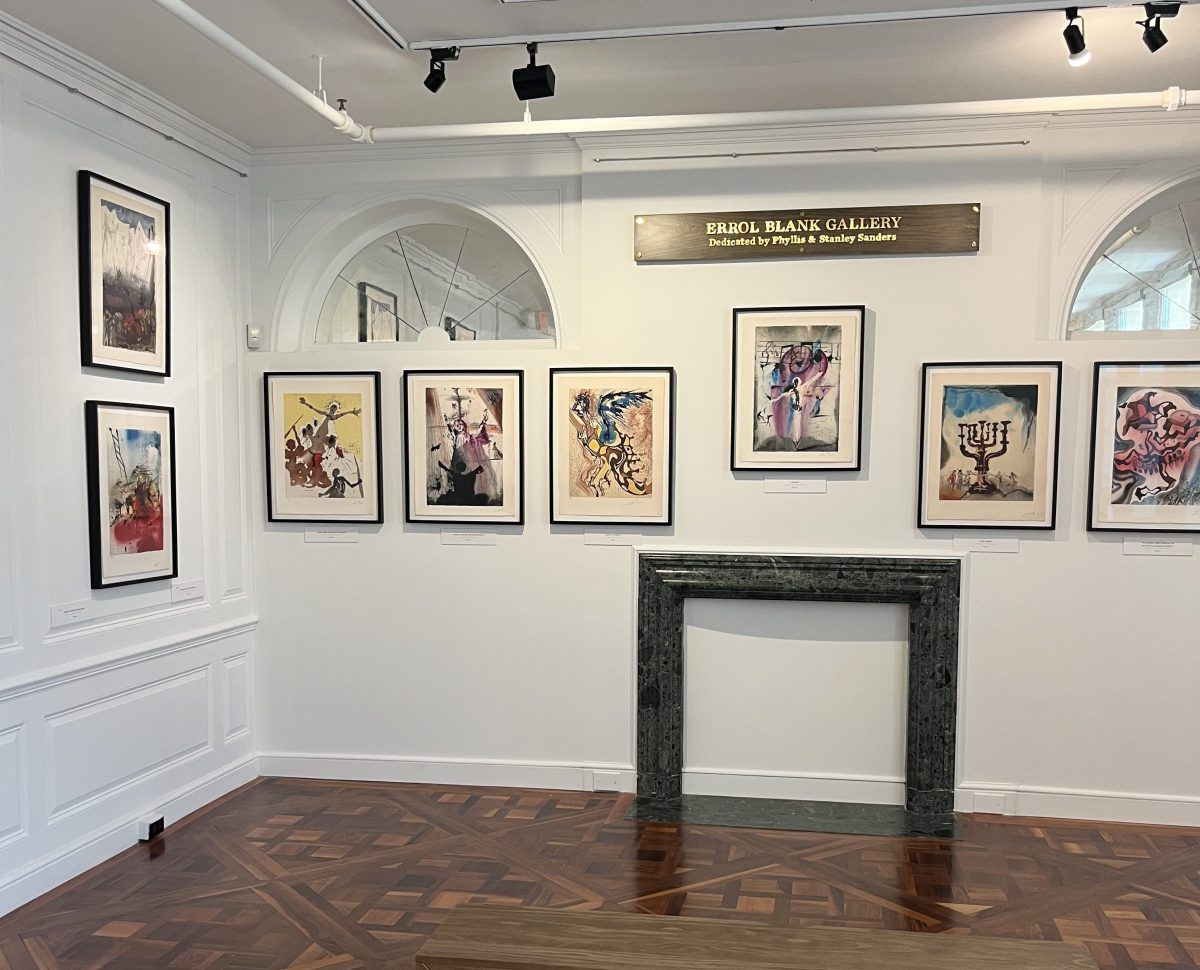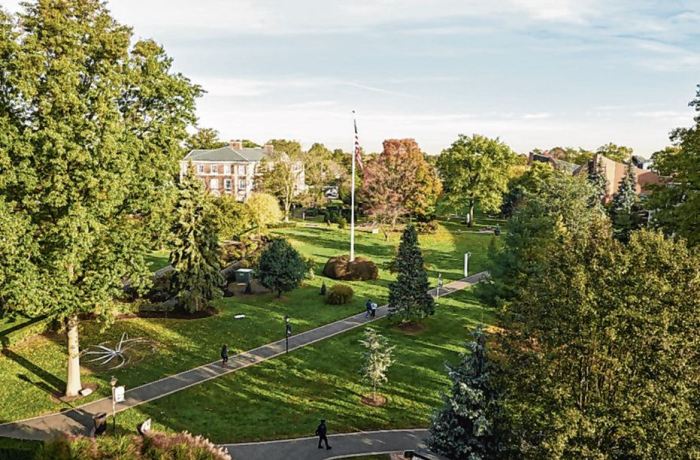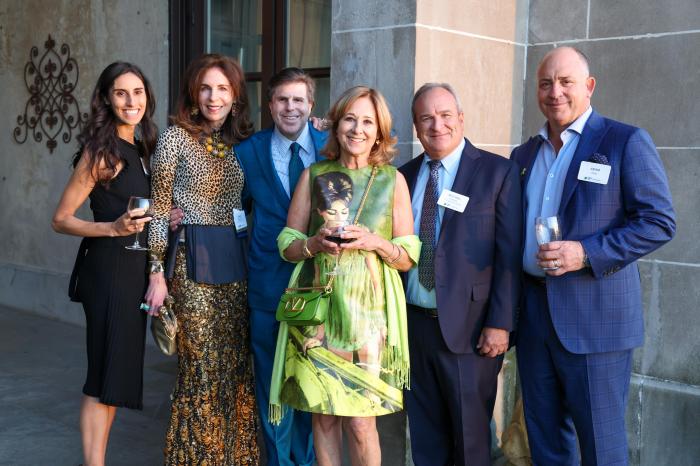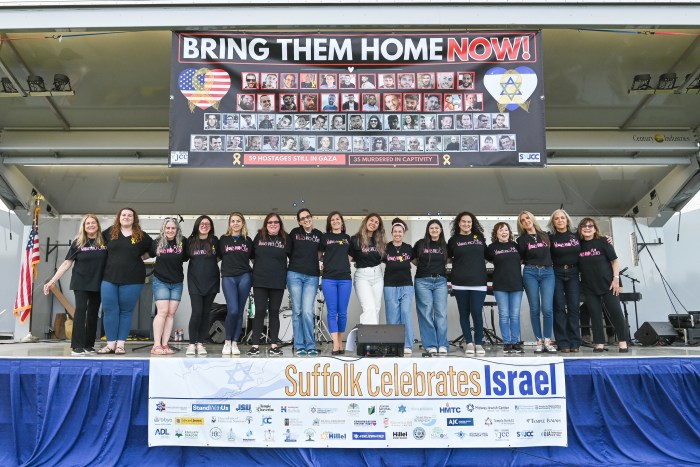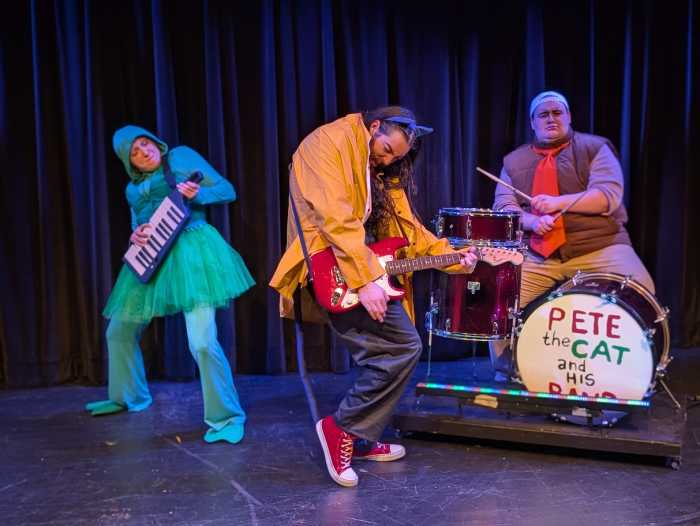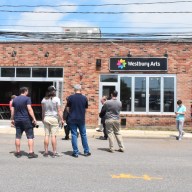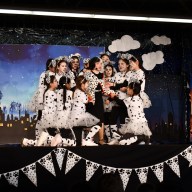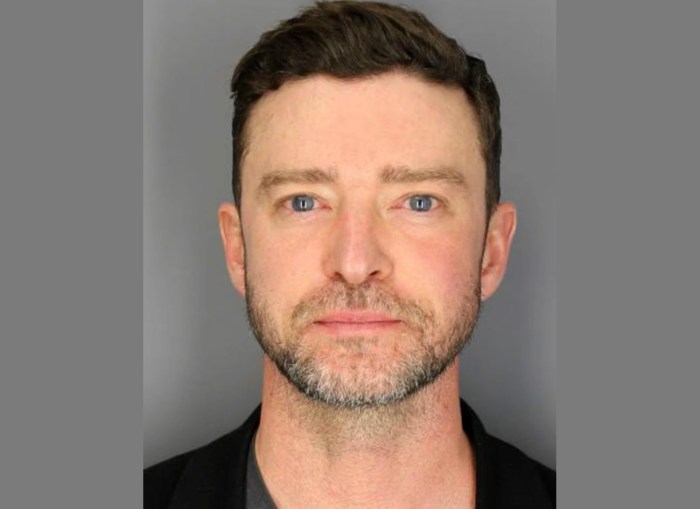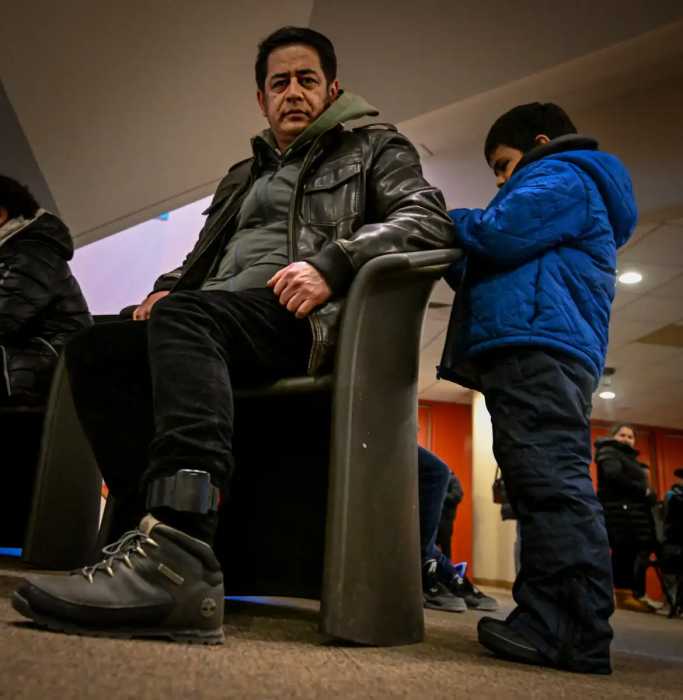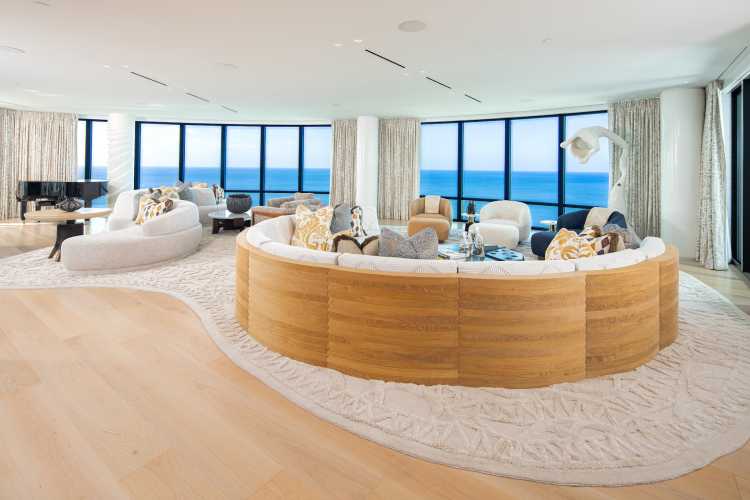The Holocaust Memorial & Tolerance Center of Nassau County has drawn crowds this year with a striking exhibition of Salvador Dalí’s Aliyah: The Rebirth of Israel, a rare complete portfolio of 25 lithographs commemorating the 20th anniversary of Israel’s founding.
On loan from a private collector, the exhibit opened in December and was originally scheduled to close in August. But due to strong visitor demand, the center extended the show through September and possibly into October.
“This exhibition has had a wonderful response,” said Donna Rosenblum, director of education at the center. “Between December and June, we offered special Sundays with docents from the Nassau County Museum of Art leading tours and the turnout was incredible.”
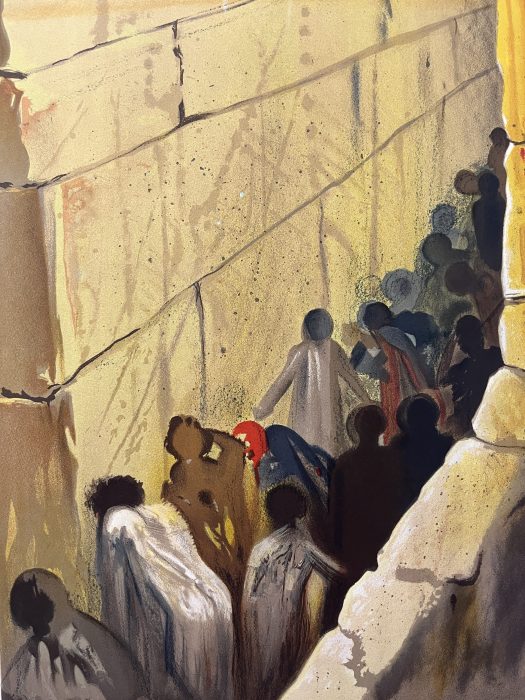
Dalí, known worldwide for his surrealist imagery, was commissioned in 1967 by publisher Samuel Shore to create a series honoring Israel’s founding. In 1968, at the height of his career, he produced the works that merge symbolism, allegory and historical reflection. Each of the 25 pieces in the Aliyah portfolio is signed and numbered; the Holocaust Center’s loaned collection is set No. 49 out of 250.
“Many of these sets were broken apart and sold off piecemeal,” Rosenblum explained. “The fact that we have a complete set, all 25 lithographs together, is more than luck. It’s extraordinary.”
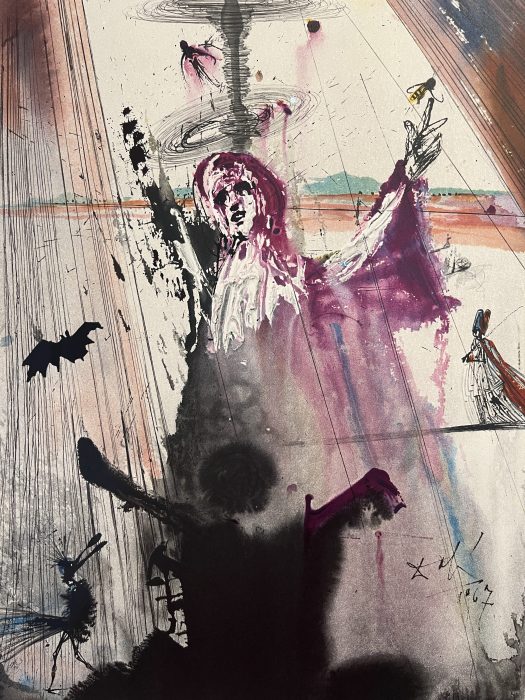
The portfolio takes its name from the Hebrew word “aliyah,” the immigration of Jews to Israel. For Rosenblum, that concept resonates deeply with both Jewish history and Dalí’s personal experience as a refugee.
“Dalí himself wasn’t Jewish, but he understood what it meant to flee,” she said. “He escaped Europe during World War II and received a visa from Aristides de Sousa Mendes, the Portuguese diplomat who helped so many people, many of whom were Jews fleeing Nazi oppression.”
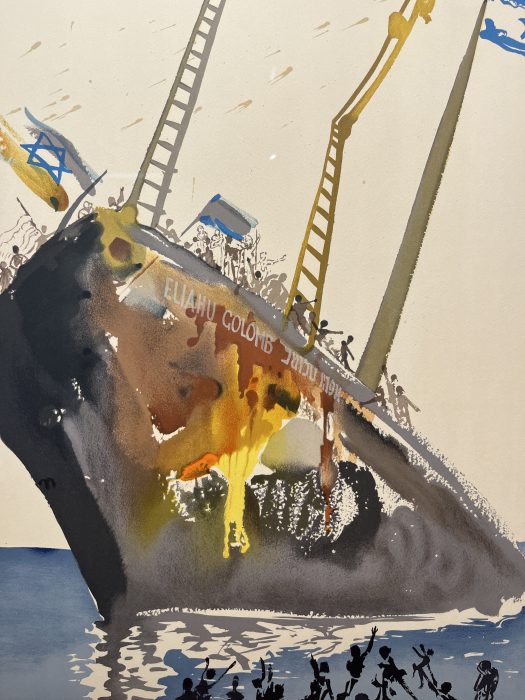
The lithographs, which range in tone from vibrant and hopeful to somber and reflective, depict themes of exile, freedom and nationhood. Some, like “On the Shores of Freedom,” portray the promise of arrival in a homeland. Others, such as “The Western Wall,” emphasize sacred tradition and continuity.
“I think a powerful message from this exhibit is the fact that the creation of a homeland, the creation of a country, is something everybody can identify with,” Rosenblum said. “Especially today, when many people question Israel’s right to exist, Dalí’s vision reminds us of resilience and rebirth.”
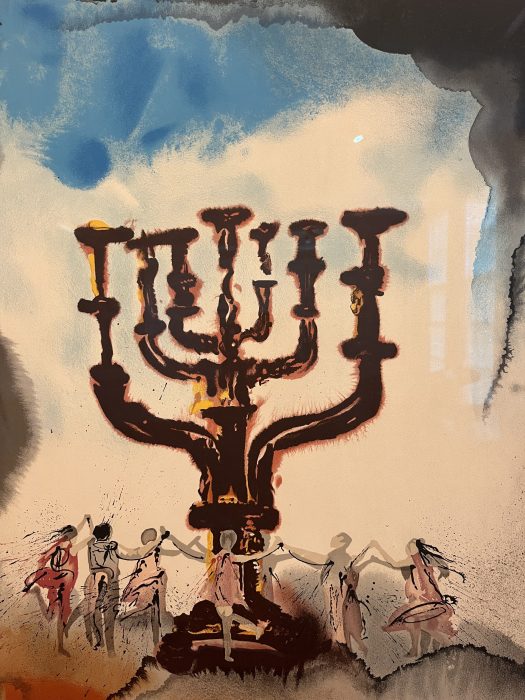
Visitors can view the works in a single gallery space at the center, which has arranged the lithographs with detailed descriptions to provide historical and cultural context. For those seeking deeper insight, limited docent-led tours are available upon request.
“The center has been very grateful to have had the opportunity to share it with the public,” she said.
The exhibition is curated by Gertrud Borchardt and Charles A. Riley II, Ph.D., with support from the Holocaust Memorial & Tolerance Center’s staff, board of directors, particularly Jolanta Zamecka and the exhibition committee.
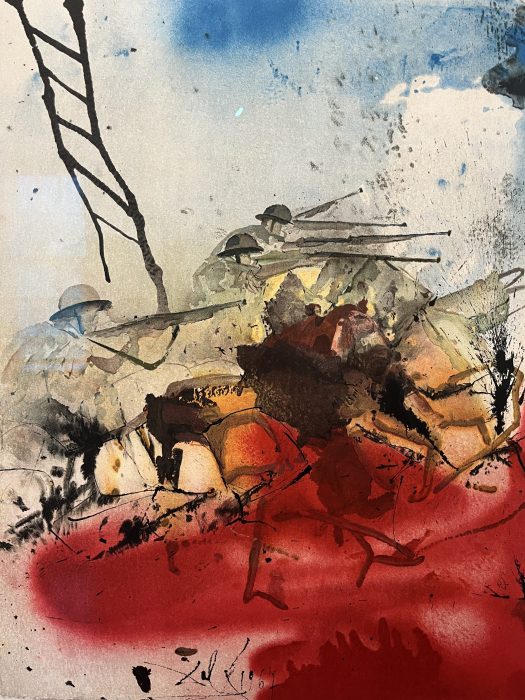
For Rosenblum, the importance of hosting Aliyah at the center goes beyond aesthetics. It is about education, memory and identity.
“These pieces are not Dalí’s usual surrealist style, but they’re incredibly beautiful and meaningful,” she said. “The colors, the symbolism, the emotion—they tell a story of hope and survival that fits perfectly with our mission here.”
The Holocaust Memorial & Tolerance Center is located on the grounds of Welwyn Preserve at 100 Crescent Beach Rd. in Glen Cove. Visit www.hmtcli.org or call 516-571-8040 for updated exhibition hours and information on docent tours.




